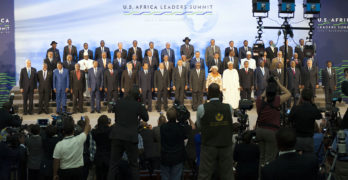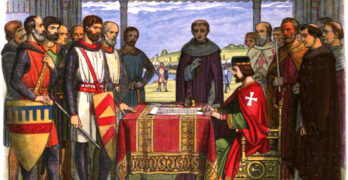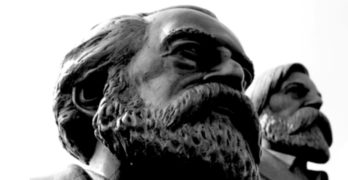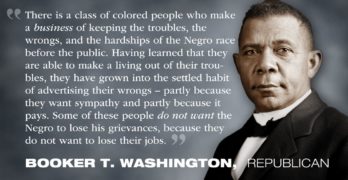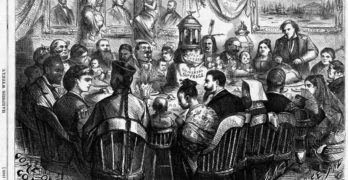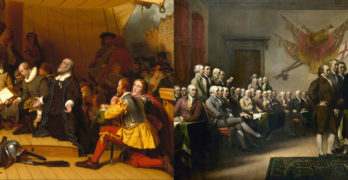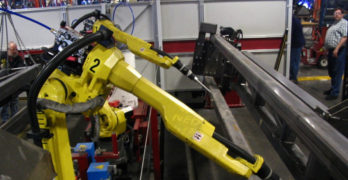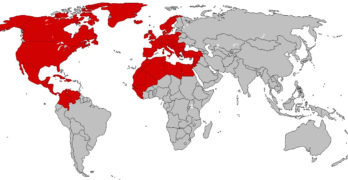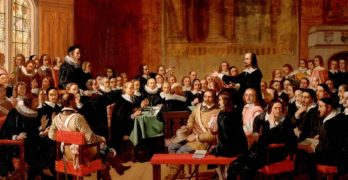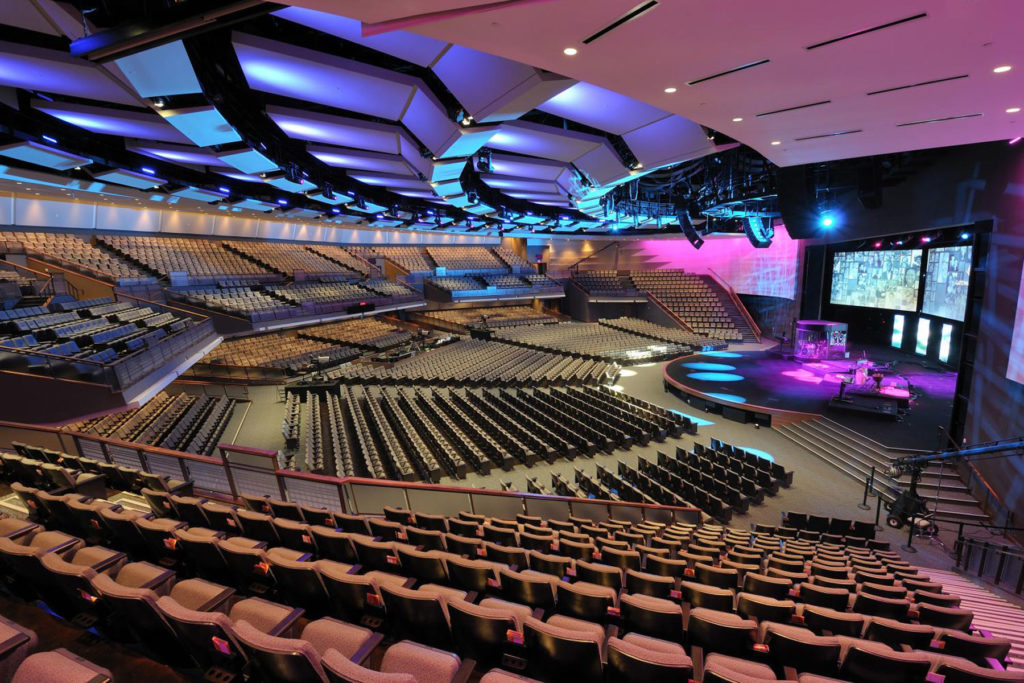 Jesus says that He is going to build His Church that no force of evil will ever prevail against it (see Mathew 16:18). Peter also reminds us that the Church is built on the foundation of the apostles and prophets, with Jesus Christ as the cornerstone (see1 Peter 2:4-9).
Jesus says that He is going to build His Church that no force of evil will ever prevail against it (see Mathew 16:18). Peter also reminds us that the Church is built on the foundation of the apostles and prophets, with Jesus Christ as the cornerstone (see1 Peter 2:4-9).
What is the Church? The church is not a business or a corporation and it is not of this world. The Church is in the world but not of the world, it is not an organisation. The Church is not buildings or programs. The Church is the Body of Christ. The Church is the people. It is made up of many parts.
The Church is gifted with apostles, teachers, pastors, evangelists, encouragers, healers, prophets, and administrators. The Church is a place where two or more are gathered in the name of Jesus. It is a place where the Scriptures are discussed, interpreted and preached.
When the Church meets together, one will bring a hymn, another might bring a teaching, or a special prophetic knowledge. It is a place where everyone can be edified (1 Corinthians 14:26). It is also a place where the sick can ask for the elders to anoint them with oil and pray over them (James 5:14). It is a place where we confess our sins to one another.
In 1 John 1:7 the apostle John states, “If we walk in the light as He is in the light, we have fellowship with one another, and the blood of Jesus Christ His Son cleanses us from all sin.”This means we are to be honest and open with each other.
The Church is where koinonia (fellowship) takes place and God’s children use their gifts to build one another up. The Bible tells us that we are the spiritual temple built out of living stones (1Peter 2:5). Jesus is its sole foundation and cornerstone (Ephesians 2:20; 1 Corinthians 3:11) in whom the Holy Spirit dwells, replenishing and sanctifying the hearts of the faithful.
The Body of Christ is the living temple of God. The Church consists of individual members who walk among people of all races and nationalities. No geographical, political or cultural boundaries identify the extent of the Church because it has no earthly parameters. The Church is admonished not to be part of this world.
Paul warns us not to conform to this world, but to be transformed by the renewing of our minds so that we may prove what good, acceptable and perfect will of God (see Romans 12:2). James says that being the world’s friend is being God’s enemy. So whoever chooses to be a friend of the world takes his stand as an enemy of God (see James 4:4; I John 2:15-17).
We are in the world but not of the world. We are citizens from every country on the face of the earth; but we are different. Christians are not promised an inheritance on this earth because we are destined for heaven.
Spiritual Endowment
The final harvest of souls into the Kingdom of God will not take place until we’ve had the full outpouring of the latter rain of the Holy Spirit upon the Church all over the world. Repent (change your views and purpose to accept the will of God in your inner selves instead of rejecting it) and be baptized, every one of you, in the name of Jesus Christ for the forgiveness of and release from your sins; and you shall receive the gift of the Holy Spirit.
The gift is for you and your children, says Peter to the Jews whom he was immediately addressing and the generations that would follow them which implied all the coming ages of the church’s history to Gentile as well for Jews: “and for all who are far off- for all whom the Lord will call and bids to come Himself” (see Acts 2:36-39). The baptism with the Holy Spirit is for every child of God in every age of the church’s history.
The Holy Spirit is a Person Who knows the things of God and reveals to us what He himself knows. Now there are distinctive varieties and distributions of endowments (gifts, extraordinary powers distinguishing certain Christians, due to the power of divine grace operating in their souls by the Holy Spirit) and they vary, but the Holy Spirit remains the same (1 Corinthians 12:4 AMP).
In 1 Corinthians 12:7-11, the Holy Spirit is presented as a divine Person Who gets hold of us and uses as according to His will. These diversity of gifts given by the Holy Spirit to individuals are given according to the line of service to which each person is called. Not everyone can be an evangelist or a preacher of the Word. The Holy Spirit according to His wisdom and purposes distributes to every person individually as He wills. He also imparts to each one a special gift for the special service to which he/she is called.
The supernatural gifts of the Holy Spirit are not given primarily to the individual believer. Rather they are given through individual believers to the church as a whole. In 1 Corinthians 12 Paul indicates that the spiritual gifts or special endowments of supernatural energy are intended to function within the corporate life of the congregation.
The ability of the members to minister to one another is due to these supernatural spiritual gifts. This ability of believers to minister to each other does not depend on education or natural talent. If at all the church depends on these factors, then the main burden of ministry would fall upon on just a few of the members, while the rest remain largely passive without any real opportunities for spiritual expression.
Today most pastors are overworked and imprisoned in a highly demanding system. When you ask a typical evangelical Christian to stand up in the Sunday service to exercise some ministry function, he will hyperventilate until he faints!
In his book, The Spirit- Filled Believer’s Handbook, Derek Prince writes that,
The reason why so many professional ministers in our modern churches suffer mental or nervous breakdown is that, in many cases, one member is struggling to carry a burden of ministry which God never laid upon him. One member is seeking to fulfill a ministry which God intended to be divided up among all the members of the Church.
The only escape from the limitations and frustrations of this situation is through the supernatural ministry of the Holy Spirit in the Church dividing spiritual gifts to all the members individually, according to His own will. This delivers believers from their own natural limitations and lifts them into a spiritual realm where they can share together the burden of the total ministry of the church. When all members are thus equipped to function in their individual ministries, the church as a whole can fulfill its corporate role as the body of Christ.
If we are going to have the whole picture or message in these last days, we are going to need the humility to work with others, listen to others, and put our parts together in love and unity shed abroad in our hearts by the Holy Spirit.This is evidenced by what the apostle Paul tells us in Ephesians 4 about the five-fold ministry.
And He Himself gave some to be apostles, some prophets, some evangelists, and some pastors and teachers, for the equipping of the saints for the work of ministry, for the edifying of the body of Christ, till we all come to the unity of the faith and of the knowledge of the Son of God, to a perfect man, to the measure of the stature of the fullness of Christ; that we should no longer be children, tossed to and fro and carried about with every wind of doctrine, by the trickery of men, in the cunning craftiness of deceitful plotting, but, speaking the truth in love, may grow up in all things into Him who is the head—Christ— from whom the whole body, joined and knit together by what every joint supplies, according to the effective working by which every part does its share, causes growth of the body for the edifying of itself in love (Ephesians 4:11-16 NKJV).
The first ministries mentioned here are the apostles, prophets, evangelists, pastors and teachers and their function is to equip the saints to do their own work. All these gifts and positions are not the same thing.
For instance, the confirmation of Paul’s earlier call to missionary service came during a prayer meeting at Antioch. A prophecy was given by the Holy Spirit which said that the time had come for Paul and Barnabas to be separated from the rest of the church so that they could begin the work to which God had called them. Paul received a call to service from Jesus Christ at his conversion, but that call had to be confirmed by the Holy Spirit through a prophecy in the Church.
Someone may be asking: What if I have a call from the Lord but nobody in the Church confirms it?
We have to realize that deep in the innermost being of every man and woman who loves God, there is an innate and overwhelming desire to do something for Him. The first thing we all do when Jesus has saved us is to seek Him to give us some work to do for Him, as an outlet for our love and gratitude to Him; some self-denying service, no matter what it might be, however trying or trivial; something with which He would be pleased, that we might do for Him who has done so much for us. That desire which cannot be explained in human words has to be encouraged, equipped and released if the church is going to be effective in making authentic disciples in these last days.
The problem is many leaders in the church find it difficult to look on each and every member of their congregation as someone who wants to do something for the Lord. Along that line, let me quote James Rutz in his book, The Open Church, How to Bring Back the Exciting Life of the First Century Church. Rutz writes,
Our current Western church system is based on importing a professional to be the head of the church. If care is not taken, this can discourage the average member from ministry—especially leadership….If a person really wants to serve God, he/she is encouraged to go to Bible school. Why? Because the church is not prepared or equipped to raise the believer to maturity so that they, in turn can raise other believers to maturity…
Rather than the church being like a business, it is to be a family. The two, business and family, have different foundations, becoming part of the family usually happens by birth or through a commitment that springs forth from love. Family commitment is for life and cannot be simply put aside. On the other hand, a business relationship is based upon accepting a job.
When Christianity became accepted and popular, local churches began to erect buildings and hire pastors. This set off a chain reaction of tragedies:
- Open worship and sharing ceased.
- Congregations turned into audiences. Participants became spectators
- The true priesthood of the believer was discarded. Ordinary believers became laymen, with no ministry functions allowed in church.
- Leadership and authority became centered in the priesthood.
Francis Chan started his California mega church in his living room. He says it was all he knew to do. Until the Holy Spirit convicted him. In the next video he explains why…..
Making Disciples
The Bible provides a sufficient model and it is the ultimate standard by which to judge all other ages. In the New Testament, especially in the book of Acts, the leadership was raised up from the local church. So the book of Acts gives us a model of what the early church members did and what they were. The apostles were concerned that people should become disciples; they were not interested in our modern methods of preaching. They realized that disciple making takes time and so Paul would stay in a place for a considerable period of time to make sure that the believers were established.
In Ephesus he taught about the kingdom of God every afternoon from 12 until 4 o’clock for two years in order that young converts might learn and new people would come to a saving knowledge of Jesus Christ. In fact those who came to faith were commonly known as disciples or followers of the way. It was perseverance on the journey that mattered, not a one-off decision that has little effect on daily life.
But we have substituted churchianity for Christianity. Churchianity produces church members; Christianity produces disciples. Churchianity demands conformity; Christianity demands commitment. The great majority of professing Christians today are not even aware of their departure from their original pattern and standard of the Gospel.
We’ve simply formed our concept of Christianity from what they see in the contemporary Church. Yet when Jesus sent out those first apostles, His instructions were perfectly clear: “Go… and make disciples of all nations” (Matthew 28: 19). We should be striving toward this great commission according to a definite strategic plan we each get from the secret place, instead of wasting our efforts in trivial everyday affairs.
Establishing and the discipleship of the converts is the pattern throughout Scripture, it’s the pattern described in 2 Timothy 2:2
And the instructions which you have heard from me along with many witnesses, transmit and entrust as a deposit to reliable and faithful men who will be competent and qualified to teach others also.
Many of us have read the words of the Great commission that we are to make disciples. But few of us understand that verse or more less obey it. The mission of the Church is to preach the Gospel, make disciples of all nations, and declare to all people that the return of the Lord and the Kingdom of God is at Hand.
In a nutshell, the solution again according to James Rutz, is to open the church to full participation by everyone! We do this by…
- Reducing apathy, weakness, fear of witnessing, worldliness, and over activity to the minimum.
- Transforming laymen from spectators into strong, healthy participants.
- Restoring each person’s individual ministry and making him or her unique in the household of God.
- Freeing pastors from overwork and enabling them to concentrate on making their parishioners grow spiritually.
- Turning laymen into joyous, loving, holy, wise, and powerful servant priests who are capable of fulfilling the Great Commission in our time.
God has designed every believer to carry His anointing and to fulfill a unique purpose. When his life is filled with the Holy Spirit, he/she is empowered to accomplish God’s will for his/her life. If we seek His face, He will not only reveal Himself, but pour out His Spirit to perfect and fully equip His saints that they should do the work of ministering toward building up the church, that it might develop until we all come to the unity of the faith and of the full and accurate knowledge of the Son of God.
If we get to know Him intimately and accurately, and give Him His right place in every part of our lives, Paul says we should no longer be like children, tossed to and fro and carried about with every wind of doctrine.
Therefore, if we submit to the Holy Spirit, there will be love, truth, and fruitfulness in all things into Him who is the head-Jesus Christ. No one will be able to cheat you through philosophy and empty deceit, according to the tradition of men, according to the basic principles of the world, and not according to Christ.
For in Him dwells all the fullness of the Godhead bodily; and you are complete in Him, who is the head of all principality and power (see Colossians 2: 8-9). He is the one who will judge the world righteously (see Acts 17).






